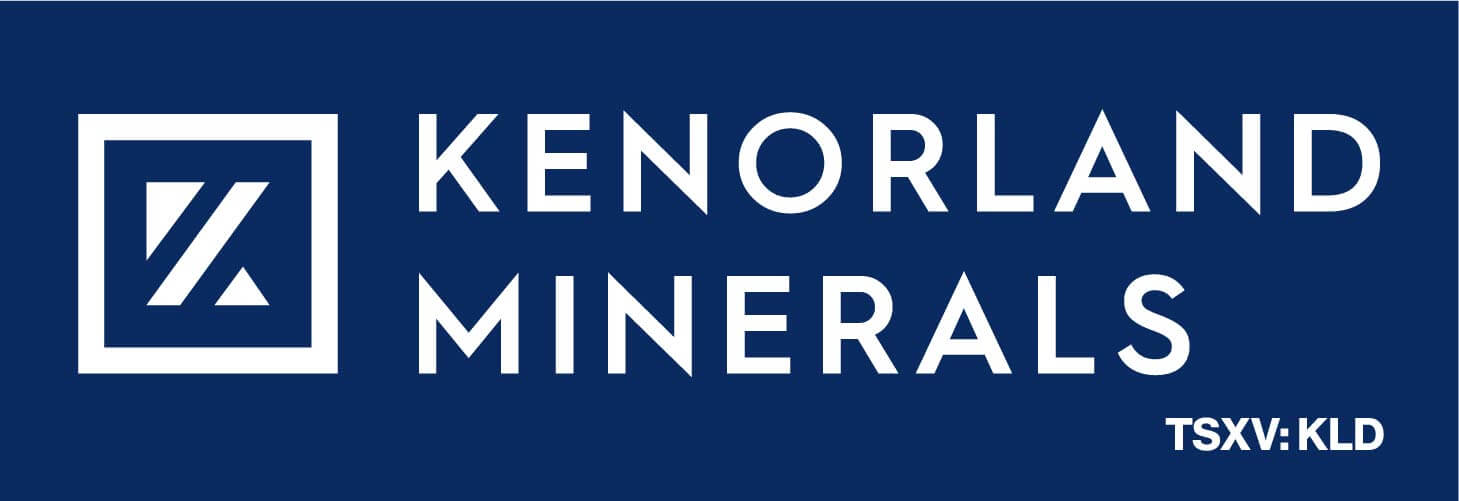MAX Power Identifies Multiple Natural Hydrogen “Fairways” In Saskatchewan, Gears Up For Drilling
VANCOUVER, British Columbia, Dec. 24, 2024 (GLOBE NEWSWIRE) — MAX Power Mining Corp. (CSE: MAXX; OTC: MAXXF; FRANKFURT: 89N) (“MAX Power” or the “Company”) is pleased to provide the following corporate update as the Company closes out 2024 with a rapidly growing pipeline of Canada’s premier Natural Hydrogen targets in Saskatchewan approaching the drill-ready stage.
Highlights:
- Large hydrogen anomalies, many associated with faults, have been identified through a MAX Power regional geochemical soil gas survey in southeast Saskatchewan with exceptional values as high as 914 ppm hydrogen;
- Multiple data clusters from the soil gas survey, combined with hyperspectral readings, support MAX Power’s hydrogen formation and accumulation model for southern Saskatchewan, suggesting the presence of potential reservoirs hosting Naturally Occurring Hydrogen (NOH) at the Rider Project where permit applications covering broad areas have been approved with more approvals anticipated shortly;
- In addition to the Rider Project, the MAX Power geological team over the past couple of months has delineated other major “Hydrogen Fairways” in Saskatchewan with further details to be announced early in the New Year.
Mr. Mansoor Jan, MAX Power CEO, commented: “We are on track to become the first company to drill specifically for Natural Hydrogen in Canada, during Q1, and further build on our first-mover advantage. We are highly confident, after exhaustive studies, and given the advanced provincial policy framework in Saskatchewan vs. other Canadian jurisdictions, that Saskatchewan offers the best immediate opportunity for the discovery of Canada’s first commercial concentration of Natural Hydrogen, followed by many more. This low-cost, low-emissions alternative energy source right under our feet, through drilling, could revolutionize how we think about energy in North America at a time when affordability and energy security will be at the forefront of incoming new administrations in Ottawa and Washington in 2025.”
Mansoor added, “We take this opportunity to wish all of our shareholders and stakeholders a Merry Christmas and best wishes for a safe, healthy and prosperous New Year. We will begin a transformational 2025 for MAX Power in robust fashion in January.”
Summary of the Gas-in-Soil Study
Petro-Find is a soil gas sampling leader in Western Canada and has developed a proprietary system that captures highly accurate readings for hydrogen from specialized gas probes driven into soils (well into the C-Zone of the soil profile, approximately 2.5 feet).
The main purpose of the widely-spaced gas probe survey was to test the basin scale geologic model created by MAX Power. The results support the potential for commercial concentrations of Natural Hydrogen in southeast Saskatchewan, with drilling to target accumulations of high-grade hydrogen at depth. Similar to the production of other mobile resources such as helium, natural gas, crude oil and water, a Natural Hydrogen prospect requires 5 “key factors” in order to pool and concentrate: 1) The right source rock(s); 2) Migratory pathways; 3) Trap; 4) Reservoir; 5) Seal. All five are present at Rider. Without all of these key factors, the likelihood of commercial NOH concentrations being present would diminish.
Petro-Find noted in its report that “the geochemical soil gas survey consisting of 286 sampling points produced excellent results with the detection of major hydrogen anomalies…that represent reservoirs of hydrogen. Hydrogen is contemporaneous, meaning hydrogen reservoirs may not be exhausted with production as they may be constantly recharged. The rough correlation of geochemical soil gas and hyperspectral anomalies in this report suggests a new approach can be implemented in the exploration of hydrogen.”
Results were consistently and remarkably anomalous to highly anomalous across the board and included hydrogen values of 914 ppm, 849 ppm, 435 ppm, 327 ppm, 275 ppm, 207 ppm, 203 ppm, 172 ppm, 164 ppm, 156 ppm, 141 ppm, 139 ppm, 134 ppm, 131 ppm, 130 ppm, 117 ppm, 115 ppm, 108 ppm and 106 ppm.
The fact that MAX Power received such encouraging results in the subsoil near-surface reinforces the immense mobility of hydrogen and the potential for very high grades in concentrations at depth. Even with pervasive seals of the Prairie Evaporite and to a lesser degree the Mississippian-aged Watrous, some of the hydrogen still migrates upwards to the subsoil.
Quality Assurance/Quality Control
The Petro-Find geochemical survey program for MAX Power began with the preparation of sample vials and replacing the septa in the probes. The vials were evacuated down to 1/5 Torr so that a sample extracted by a syringe was not contaminated with residual ambient air containing the gases to be measured. To avoid breakage in transit to the laboratory, the glass vials were inserted into holes cut into Styrofoam and placed in firm boxes. For the dry soils, a cordless rotary drill was used to drive a non-plugging hollow stainless steel probe to an average depth of 2.5 feet, or well into the C-Zone of the soil profile to avoid atmospheric pumping action at the near-surface. Once the probe was driven to the desired depth, a syringe was used to extract 15cc of soil gas through a septum at the head of the probe. This was discarded to purge the inner volume of the probe. A sample of 24cc was then extracted and injected through the septum of a 12cc vial, thus achieving over doubling of the pressure in the vial. The vials were inserted into holes in Styrofoam and placed in a box for shipment to Petro-Find’s lab. Another operation at the sampling site was the recording of coordinates by GPS. The soil gas samples were analyzed in Petro-Find’s lab in Neuanlage, just north of Saskatoon for hydrogen, helium and light hydrocarbons by two state-of-the-art gas chromatographs. The coordinates and analytical data were downloaded to a computer and saved as an EXCEL file. GPS Utilityis was used to import GPS readings and for plotting sample stations on a base map. Contour maps of hydrogen, helium, and hydrocarbon concentrations were produced using all the data points. The data points were contoured by a triangular, non-gridded computer program from Scientific Computer Applications Inc. of Tulsa, Oklahoma. To be anomalous, the concentrations must exceed those of ambient air, 0.50 ppm (0.50 ppm for hydrogen, 5.4 ppm for helium).
Qualified Person
The technical information in this presentation has been reviewed and approved by Thomas Clarke Pr.Sci.Nat., P.Geo. Mr. Clarke is a Director of MAX Power Mining Corp. Mr. Clarke is the Qualified Person responsible for the scientific and technical information contained herein under National Instrument 43-101 standards.
Natural Hydrogen Video
Learn more about Natural Hydrogen by clicking on the following link:
https://vimeo.com/953002092/d6f8574ba4
MAX Power Natural Hydrogen Deck
Learn more about MAX Power’s push into North America’s Natural Hydrogen sector by clicking on the following link:
https://www.maxpowermining.com/Presentations/MAXPower-NaturalHydrogen.pdf
MAX Power Corporate Presentation
Click on the following link to view MAX Power’s Corporate Deck:
https://maxpowermining.com/Presentations/MAXPower-Corporate.pdf
About MAX Power Mining
MAX Power is an innovative mineral exploration company focused on North America’s shift to decarbonization. MAX Power is a first mover in the rapidly growing Natural Hydrogen sector, through strategic alliances with Calgary-based Chapman Hydrogen & Petroleum Engineering Ltd., and European- based Larin Engineering HHC. MAX Power also holds a portfolio of properties in the United States and Canada focused on critical minerals. These properties are highlighted by a recent diamond drilling discovery at the Willcox Playa Lithium Project in southeast Arizona.
On behalf of the Board of Directors,
| Mansoor Jan, CEO MAX Power Mining Corp. |
MarketSmart Communications Tel: 877-261-4466 |
| [email protected] | |
Forward-Looking Statement Cautions
This press release contains certain “forward-looking statements” within the meaning of Canadian securities legislation, and any legislation specifically relating to natural hydrogen, exploration and acquisition of natural hydrogen properties; ability to locate, discover and/or extract natural hydrogen from the subsurface; commentary as it relates to the opportune timing to carry out natural hydrogen exploration; and any anticipated increasing demand for natural hydrogen; any results and updates thereto as it relates to any future drill program, and the funding of that program; and upcoming press releases by the Company. The Company has filed permit applications to the Saskatchewan government and there are no assurances that all or any of the permit applications will be accepted or granted to the Company. Although the Company believes that such statements are reasonable, it can give no assurance that such expectations will prove to be correct. Forward-looking statements are statements that are not historical facts. They are generally, but not always, identified by the words “expects”, “plans”, “anticipates”, “believes”, “interpreted”, “intends”, “estimates”, “projects”, “aims”, “suggests”, “often”, “target”, “future”, “likely”, “pending”, “potential”, “goal”, “objective”, “prospective”, “possibly”, “preliminary”, and similar expressions, or that events or conditions “will”, “would”, “may”, “can”, “could” or “should” occur, or are those statements, which, by their nature, refer to future events. The Company cautions that forward-looking statements are based on the beliefs, estimates and opinions of the Company’s management on the date the statements are made, and they involve number of risks and uncertainties. Consequently, there can be no assurances that such statements will prove to be accurate and actual results and future events could differ materially from those anticipated in such statements. Except to the extent required by applicable securities laws and the policies of the CSE, the Company undertakes no obligation to update these forward-looking statements if management’s beliefs, estimates or opinions, or other factors, should change. Factors that could cause future results to differ materially from those anticipated in these forward-looking statements include risks associated with possible accidents and other risks associated with exploration operations, the risk that the Company will encounter unanticipated geological factors, risks associated with the interpretation of drill program results, the possibility that the Company may not be able to secure permitting and other governmental clearances necessary to carry out its exploration plans, the risk that the Company will not be able to raise sufficient funds to carry out its business plans, and the risk of political uncertainties and regulatory or legal changes that might interfere with the Company’s business and prospects. The reader is urged to refer to the Company’s Management’s Discussion and Analysis, publicly available through the Canadian Securities Administrators’ System for Electronic Document Analysis and Retrieval (SEDAR+) at www.sedarplus.ca for a more complete discussion of such risk factors and their potential effects.
Neither the Canadian Securities Exchange nor its Regulation Services Provider accepts responsibility for the adequacy or accuracy of this release.






